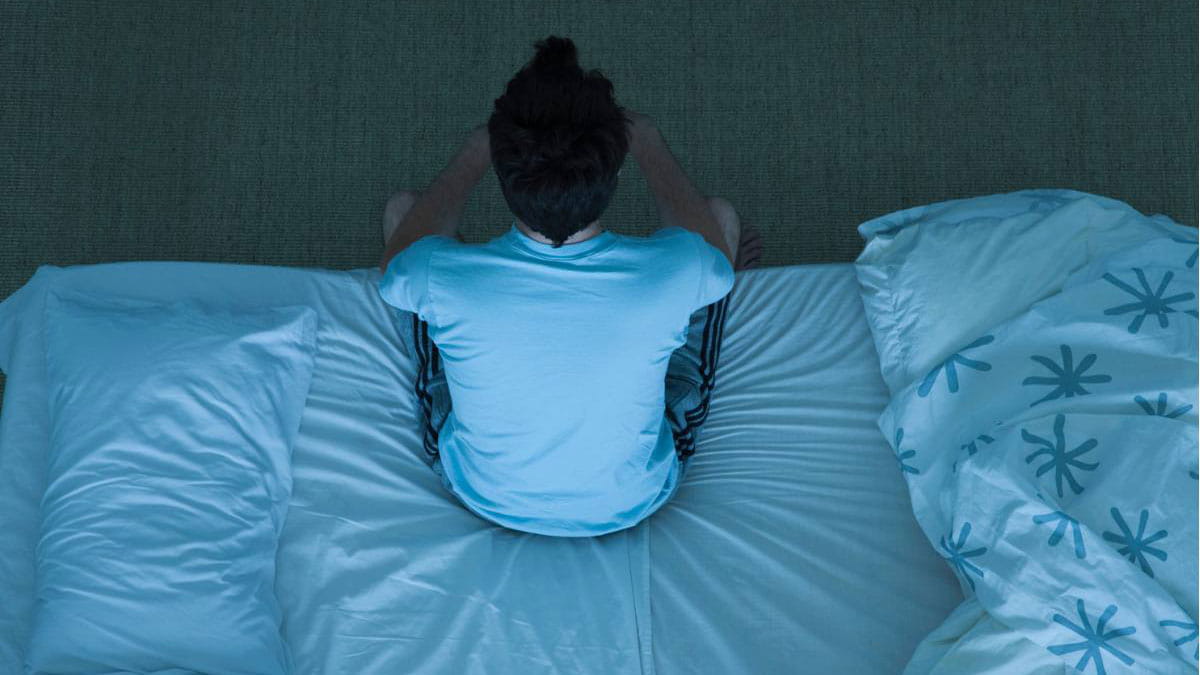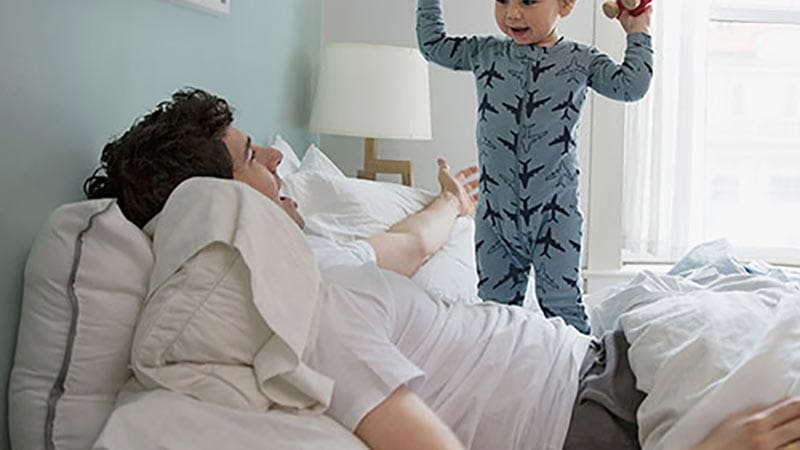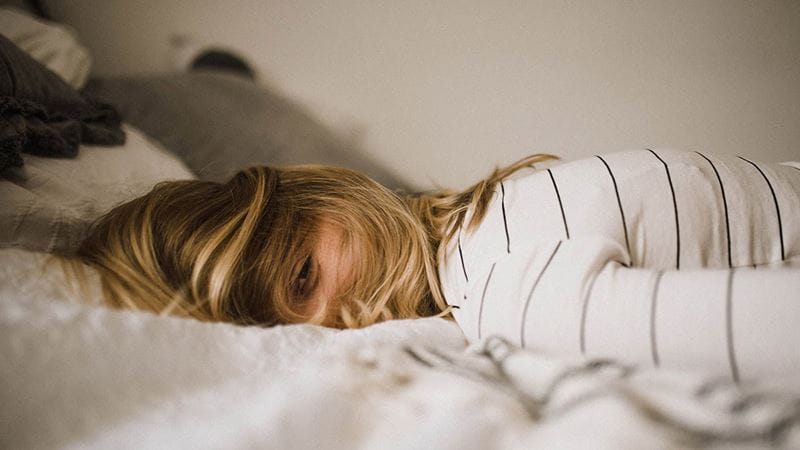Blog article
Breaking the cycle of insomnia

Do you drift off easily to a land of deep sleep, or is bedtime a battle of wakefulness and insomnia? If you struggle to get quality shut-eye, you’re not alone.
In this article
- Different types of insomnia
- What causes insomnia
- Establishing a routine
- Letting go of not-sleeping-stress
- CBT-I Evidence-based therapy
- When to seek help
According to the Sleep Health Foundation, more than half of Australia’s adult population struggles frequently with falling or staying asleep1, and around 15% of us qualify for a diagnosis of clinical insomnia. This article explores the different faces of insomnia, how and why it occurs, and how you can improve your chances of getting a restful night’s sleep.
Different types of insomnia
Insomnia appears in diverse forms, with a whole host of different causes and challenges. You may find yourself unable to fall asleep, unable to stay asleep, or waking far too early in the morning. Your insomnia may be acute (temporary or short-term), chronic (persisting for a month or longer), or primary (lifelong, beginning in childhood)2. Regardless of its classification, if you struggle with sleep, it’s probably having an impact on your mood, focus, and energy levels2.
Improving your sleep is a huge and worthwhile investment in your own health and wellbeing.
What causes insomnia?
Your sleep problems are likely multifaceted, and causes may include one or more of the following:3
- Psychological factors, such as stress, worries, anxiety, or depression
- Environmental factors, such as noise, lighting, or technology use
- Physical factors, such as caffeine, alcohol, or stimulant medications
- Medical and biological factors, such as sleep apnoea, pregnancy, menopause or even narcolepsy
- Sleep cycle interruptions, caused by jet lag, shift work, or late nights
As well as targeting underlying causes directly, it’s worth addressing your insomnia from more than one angle to maximise your chances of a restful sleep.
Establishing a routine
Humans are frustratingly and delightfully unique, so in designing your sleep routines, pay attention to what works for you. Keeping a sleep diary can help you keep track4 of what facilitates your most effective slumber. Try these evidence-based approaches to starting the night right:
- Create a sanctuary. Your bedroom should be dark, quiet, and comfortable. If light or noise can’t be avoided, consider an eye mask or earplugs. Make sure your mattress and pillows are comfortable and supportive, and the room is not too warm or cold.
- Limit exposure to electronics. Ideally, you should be off all screens an hour or two before bed. Leave devices to charge outside the bedroom, and replace late-night phone use with a relaxing audiobook or gentle music. If you require your phone for this, look into adjusting your blue light settings.
- Watch what you eat and drink. Caffeine should be avoided five hours before bed. Heavy late-night meals will affect your sleep quality, and alcohol near bedtime can lead to unwanted awakenings. Try a cup of chamomile or valerian tea in the evening.
- Use a relaxation technique. Try a meditation or self-hypnosis, breathing techniques, a sleep podcast, or mindfulness activities. It might help to write down anything that’s bothering you or that you need to remember for tomorrow.
Importantly, make your sleep routine something you look forward to, not an obligation you dread and resist!
Don’t stress about not sleeping
It’s common for those experiencing insomnia to get frustrated about being awake, and understandably so. But this emotional state is likely to perpetuate the problem.
If you associate your bed with stress and wakefulness, this conditioned association can become a self-perpetuating program. So, as easy as it may sound, instead of trying to sleep and getting annoyed that you can’t, try a relaxation technique from the list above or enjoy a calming podcast or playlist.
Focus on using this time to simply rest, and let go of it being a goal-oriented activity you can fail at.
CBT-I: Evidence-based therapy
Cognitive behavioural therapy for insomnia, or CBT-I, is tailored to address the root causes of your unique sleep difficulties.5
It usually consists of 4–8 weekly sessions with a psychologist, although online and self-help resources are also available. CBT-I seeks to address the underlying psychological, behavioural, and physiological causes of sleep problems, and has been reported to improve symptoms for up to 80% of those suffering from clinical insomnia.5
A CBT-I program may include the following:
- Psychoeducation, including the causes of insomnia and sleep hygiene
- Behavioural interventions, such as sleep restriction, stimulus control, and stress reduction techniques
- Cognitive interventions, including identifying, challenging, and altering unhelpful thoughts
When to seek help
If relaxation techniques and self-help resources aren’t helping, or if your sleep problems are having a major impact on your life, it might be time to seek help. Your GP may suggest or provide one or more of the following:
- Information about resources and help available to you
- Referral to a sleep psychologist or other specialists
- Physical assessment to identify or rule out underlying causes
- Prescription medication or sleeping tablets if necessary
Can't sleep? You might be covered for CBT-I
Here’s something you can do sans sleep – explore your HBF Extras cover. You could be covered for Psychology on your extras policy, including Cognitive Behavioural Therapy* for insomnia as mentioned in this article. If you are thinking of seeking support through a specialist, it’s worth checking out what you could be covered for.
If you’re an HBF member, you can check what you're covered for by logging on to myHBF or calling us on 133 423.
1Sleep Health Foundation - Chronic Insomnia Disorder in Australia
2Reach Out- Insomnia
3Sleep Health Foundation- Insomnia
4Sleep Foundation- Sleep Diary
5Sleep Health Foundation- Cognitive Behavioural Therapy for Insomnia (CBT-I)
*When provided by a Clinical Psychologist.
This article contains general information only and does not take into account the health, personal situation or needs of any person. In conjunction with your GP or treating health care professional, please consider whether the information is suitable for you and your personal circumstances.



